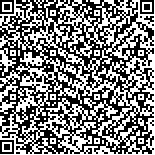本文已被:浏览 766次 下载 393次
Received:June 24, 2021 Published Online:January 20, 2022
Received:June 24, 2021 Published Online:January 20, 2022
中文摘要: 创伤性脑损伤(TBI)是威胁人类健康的主要问题之一,因其可造成人类认知能力下降、癫痫发作、运动功能受损和人格改变等,而广受人类关注,而颅脑损伤后体内微生物变化及其对脑外伤后遗症的影响机制研究还不透彻。本文回顾颅脑损伤后人体内肠道微生物的变化及其对脑外伤后遗症的影响,包括血脑屏障的通透性增加、脑肠轴的变化等,并探讨可能的干预措施,这些干预措施可作为改善临床预后和预防继发性脑损伤的措施。
Abstract:Traumatic brain injury (TBI) is one of the main problems threatening human health. It has attracted much attention because it can cause the decline of human cognitive ability, seizures, motor function impairment and personality changes. However, the changes of microorganisms in vivo after brain injury and the mechanism of their effects on the sequelae of brain injury haven't been thoroughly studied. This paper reviews the changes of intestinal microorganisms in human body after craniocerebral injury and their effects on the sequelae of brain injury, including the increase of blood brain barrier permeability and the changes of brain-gut axis. This paper also discusses possible interventions, which can be used as measures to improve clinical prognosis and prevent secondary brain injury.
keywords: Traumatic brain injury Craniocerebral injury Intestinal microbiome Blood brain barrier Brain-gut axis Pathogenesis
文章编号: 中图分类号:R651.1+3 文献标志码:A
基金项目:国家自然科学基金(81671206)
引用文本:
